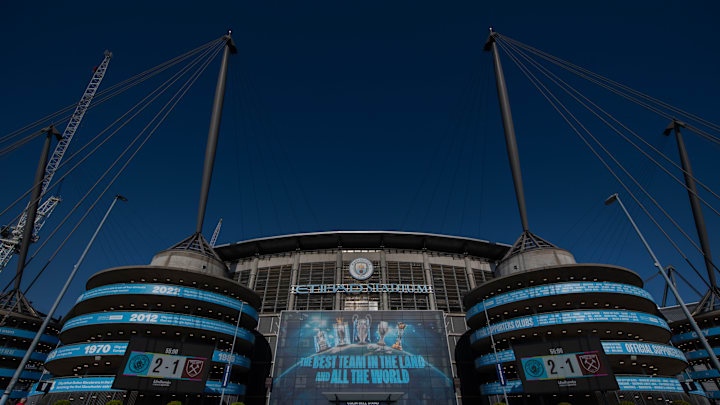Matters off the pitch continue to dominate the football world. The past week alone has seen the Premier League ditch a proposal for a salary cap because of opposition from the Professional Footballer’s Association, clubs voting against scrapping VAR and, last but absolutely not least, Manchester City announcing that they are initiating legal action against the Premier League in the wake of the club's hundred or so alleged breaches of the sport’s financial regulations.
Above all, like it or not, it is these financial regulations that football fans need to get their heads around. The reason is quite simple. As I have written before, the financial rules governing the sport have a profound impact on the outcome of individual matches and final league positions. In short, what clubs are able to spend on transfer fees and wages - above and beyond what they can raise through transfers out, sponsorship deals and match-day revenue - is limited. There is little scope, in other words, for rich owners to put their own money into clubs without breaching the regulations. Whether intended or not, one of the main consequences is that those clubs with the highest football revenues – now the big six – have a massive advantage over the others. This situation may be fair and it may ensure financial prudence, but it is having a devastating impact on competitiveness in the Premier League.
Just this week, Sky Sports reported that six clubs – Chelsea, Aston Villa, Everton, Newcastle, Nottingham Forest and Leicester – will have to sell one or more of their major assets by the end of June to comply with the profit and sustainability rules (PSR). Chelsea (one of the big six) have a surplus of top players they can afford to lose but this is not the case with the other five. It doesn’t take a genius to recognise that the sale of Ollie Watkins by Villa, Jarrad Branthwaite by Everton, Alexander Issak by Newcastle, Callum Hudson-Odoi by Forest and Kiernan Dewsbury-Hall by Leicester will significantly weaken these teams. And, let’s be clear, none of these clubs are in any danger of falling into a financial abyss if they keep their top talent so the sustainability argument for PSR is, at best, questionable.
Everton, Forest and the Foxes have been charged with, and two already found guilty of, simply incurring losses way above what PSR allows. All three have admitted as much. The main allegation against Manchester City, on the other hand, is that in the past they subverted the financial regulations by bogusly claiming the owner’s money as income from sponsorship thereby inflating the club’s football revenue at a time when it otherwise couldn’t compete financially with the existing big five. Central to this allegation is the claim that the sponsorship revenue (of £400m over ten years from 2011) provided by Etihad – the UAE state airline – is insufficiently distinguishable from the club’s owners. That sponsorship continues to this day.
The top-flight’s so-called associated party transaction (APT) rules - where clubs have to show that any sponsorship deals they enter into are financially justifiable in the sense they do not involve companies with a close relationship to club owners - have been tightened up this year. Manchester City argue that the rules are a breach of competition law, they discriminate especially against Middle Eastern-owned clubs and they are illegitimately imposed by a tyranny of the majority of members of the Premier League.
As the Athletic points out, the legal challenge threatens to undermine the Premier League’s PSR rules in general and any case brought against other clubs like Leicester City. The same arguments made by Manchester City’s owners – that the rules are an unjust restriction on clubs representing a barrier to aspiration, growth and success on the pitch – can be made by the Foxes Thai bosses.
If the Etihad club wins, not only is it less likely that the 115 charges against them already on the table will stick, but LCFC will have a legal precedent to draw upon as part of their appeal against a likely points deduction. More importantly, in the long term, if the PSR rules are said to be in breach of competition law there will be fewer limits on what clubs like Leicester can spend. If Manchester City lose the case, which begins on June 10th, the draw of a new European Super League may become irresistible. Either way, the impact will be seismic.
